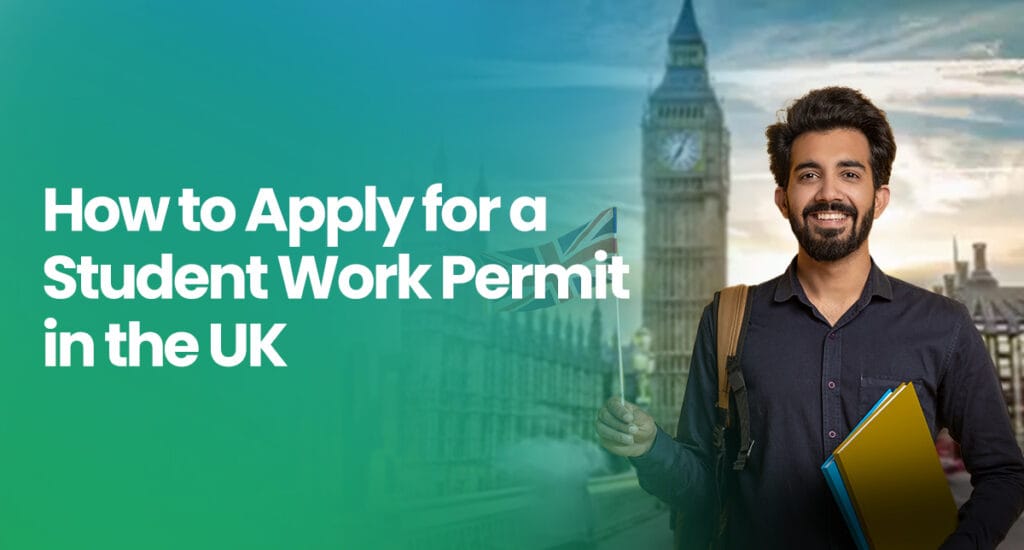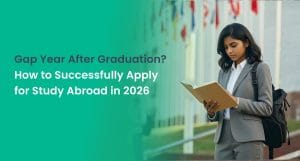Blog

21 March 2025
How to Apply for a Student Work Permit in the UK
For international students studying in the United Kingdom, the opportunity to work part-time while pursuing academic goals is not only a financial boon but also a pathway to professional growth. The UK’s Student Visa, formerly known as the Tier 4 visa, permits eligible students to work under specific conditions, offering a chance to gain practical experience and cultural immersion. However, understanding the intricacies of work approvals requires clarity and diligence. This guide simplifies the “How to Apply for a Student Work Permit in the UK”, enabling you to embrace these opportunities with confidence.
Understanding Work Permissions on a UK Student Visa
Before starting your job search, it’s crucial to understand how to apply for a Student Work Permit in the UK. Your visa includes your work rights—rather than issuing a separate “work permit”—based on your course level and the institution. If you enroll in a full-time degree program (bachelor’s, master’s, or PhD) at a recognized UK institution such as a university, you can generally work up to 20 hours per week during term time and full-time during designated vacation periods. Your Biometric Residence Permit (BRP) or e-Visa clearly outlines these rules, so make sure to review them carefully to avoid unintentional violations.
Individuals enrolled in part-time courses or holding short-term study visas usually face restricted employment rights. More rigid regulations apply to postgraduate research students, as they cannot take holiday periods unless their supervisor formally approves annual leave. Additionally, Student Visa conditions prohibit certain activities, including self-employment, professional sports, and roles that fill permanent vacancies. It is essential to understand these limitations, as detailed by UK Visas and Immigration (UKVI), to ensure adherence to the regulations.
Step-by-Step Process to Secure Work Rights
Since work permissions are inherent to the Student Visa, there’s no standalone application for a “student work permit.” Instead, ensuring your visa includes work rights involves meticulous preparation during the visa application process and vigilant adherence to conditions thereafter. Here’s how to navigate this journey:
Confirm Eligibility During Visa Application
When applying for a Student Visa, your eligibility for work rights hinges on your course and institution. Ensure your Confirmation of Acceptance for Studies (CAS) is issued by a licensed sponsor, such as a recognized university. The CAS should specify a full-time degree-level program to qualify for work permissions. During the application, you’ll pay an immigration application fee and the Immigration Health Surcharge, which grant access to the National Health Service but also signal your visa’s legitimacy.
Provide precise biometric information through a visa application center or the UK Immigration: ID Check app to obtain your BRP or e-Visa. These documents will outline your employment terms, generally permitting up to 20 hours of work per week during term time for students enrolled in degree programs. If your visa does not have the necessary work permissions or has mistaken, reach out to UKVI without delay to correct the issue, as any discrepancies may endanger your ability to work legally.
Verify Work Conditions
Once your visa is granted, inspect your BRP or eVisa for the exact work entitlements. The Home Office defines a “week” as a seven-day period from Monday to Sunday, capping work at 20 hours during term time, inclusive of both paid and unpaid roles. Full-time work is permitted during university vacations, but postgraduate research students must secure written approval for leave periods. Breaching these conditions, even unintentionally, can lead to severe penalties, including visa curtailment or fines for you and your employer.
Understand Prohibited Activities
The Student Visa imposes strict limitations 0bjectives, prohibiting certain activities to prevent misuse. You cannot engage in self-employment, set up a business, or work as a professional sportsperson, entertainer, or doctor/dentist in training (unless part of an approved program). Permanent full-time roles are also off-limits, except when transitioning to a Graduate Visa post-study. Consult your university’s International Student Advice Service or UKCISA for clarity on ambiguous roles, such as freelancing, which may be deemed self-employment.
Secure Employment Within Boundaries
Finding part-time work in the UK is feasible, especially in cities like London, where opportunities abound in retail, hospitality, or university roles like tutoring. Use resources like your university’s career services or platforms like UCL’s Career Services to identify compliant jobs. Before starting, provide your employer with your BRP or eVisa and a copy of your university’s academic calendar to confirm vacation periods for full-time work. Ensure your employer conducts a Right to Work check, as mandated by UKVI, to avoid legal repercussions.
Transitioning Post-Study
After completing your course, your Student Visa allows full-time work during the “wrap-up period” until its expiry or for up to four months, whichever is shorter. For longer-term work, apply for the Graduate Visa, which permits up to two years (or three for PhD graduates) of unrestricted work without sponsorship. Apply before your Student Visa expires, with a fee of £822 plus the Immigration Health Surcharge. This visa offers flexibility to explore jobs or switch to a Skilled Worker Visa if you secure a sponsored role.
Key Tips for Success
Stay Informed: Regularly check UKVI and UKCISA websites for policy updates, especially post-Brexit changes affecting EU/EEA students.
Document Everything: Retain records of your work hours and contracts to prove compliance if audited.
Seek Guidance: Leverage your university’s International Student Advice team for tailored advice on complex scenarios, such as work placements or visa transitions.
Plan Ahead: Apply for the Graduate Visa early to avoid gaps in work authorization, especially if pursuing long-term career goals in the UK.
Securing work rights under a UK Student Visa is a streamlined process when approached with diligence and awareness. By ensuring your visa includes work permissions, adhering to restrictions, and planning for post-study opportunities, you can maximize the financial and professional benefits of working while studying. By understanding how to apply for a student work permit in the UK staying informed. The UK’s vibrant job market, coupled with clear visa guidelines, empowers international students to thrive. For personalized support, consult your university’s immigration team or UKCISA to navigate this journey with confidence.
Also check:
USA H-1B vs UK Skilled Worker Visa: Which is Easier in 2025?




